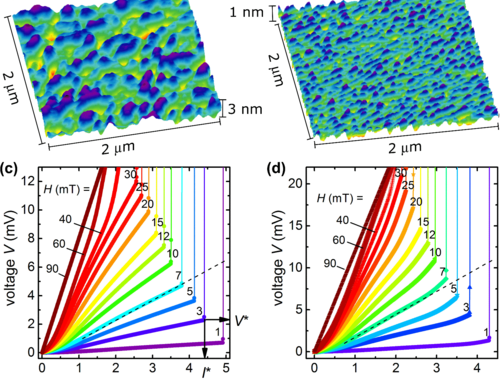
Local flux-flow instability in superconducting films near T c
Authors: Alexei I. Bezuglyj, Valerij A. Shklovskij, Ruslan V. Vovk, Volodymyr M. Bevz, Michael Huth, and Oleksandr V. Dobrovolskiy
Phys. Rev. B 99, 174518
Abstract: Larkin and Ovchinnikov established that the viscous flow of magnetic flux quanta in current-biased superconductor films placed in a perpendicular magnetic field can lose stability due to a decrease in the vortex viscosity coefficient η with increasing velocity of the vortices v. The dependence of η on v leads to a nonlinear section in the current-voltage (I−V) curve, which ends at the flux-flow instability point with a voltage jump to a highly resistive state. At the same time, in contradistinction with the nonlinear conductivity regime, instability jumps often occur in linear I−V sections. Here, for the elucidation of such jumps we develop a theory of local instability of the magnetic flux flow occurring not in the entire film but in a narrow strip across the film width in which vortices move much faster than outside it. The predictions of the developed theory are in agreement with experiments on Nb films for which the heat removal coefficients and the inelastic scattering times of quasiparticles are deduced. The presented model of local instability is also relevant for the characterization of superconducting thin films whose performance is examined for fast single-photon detection.
